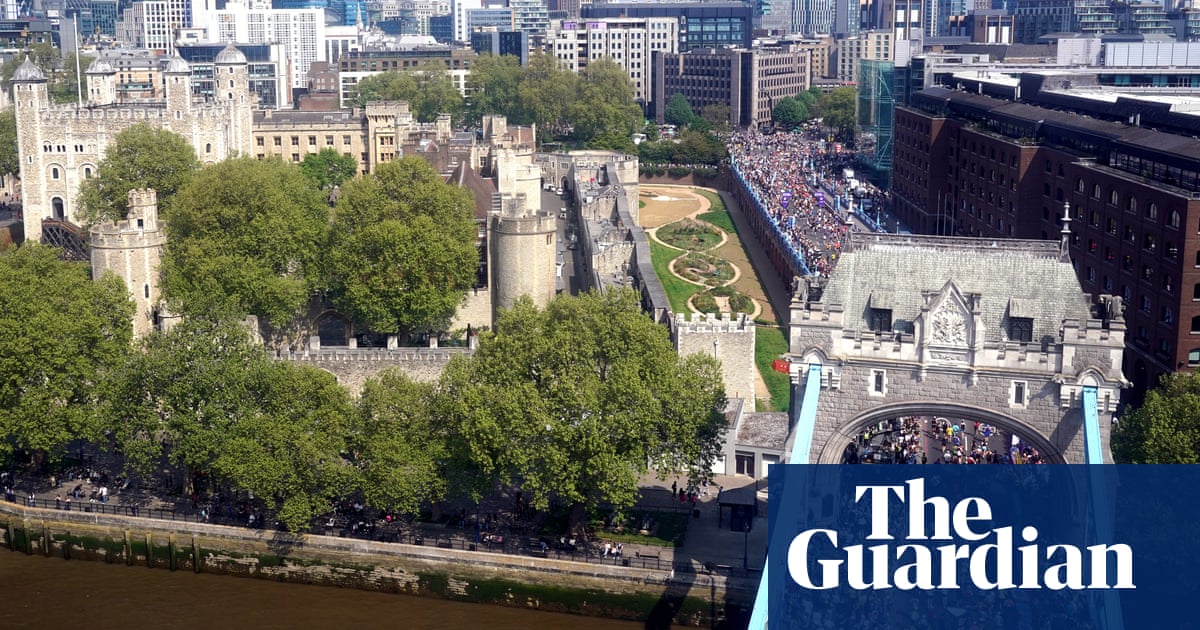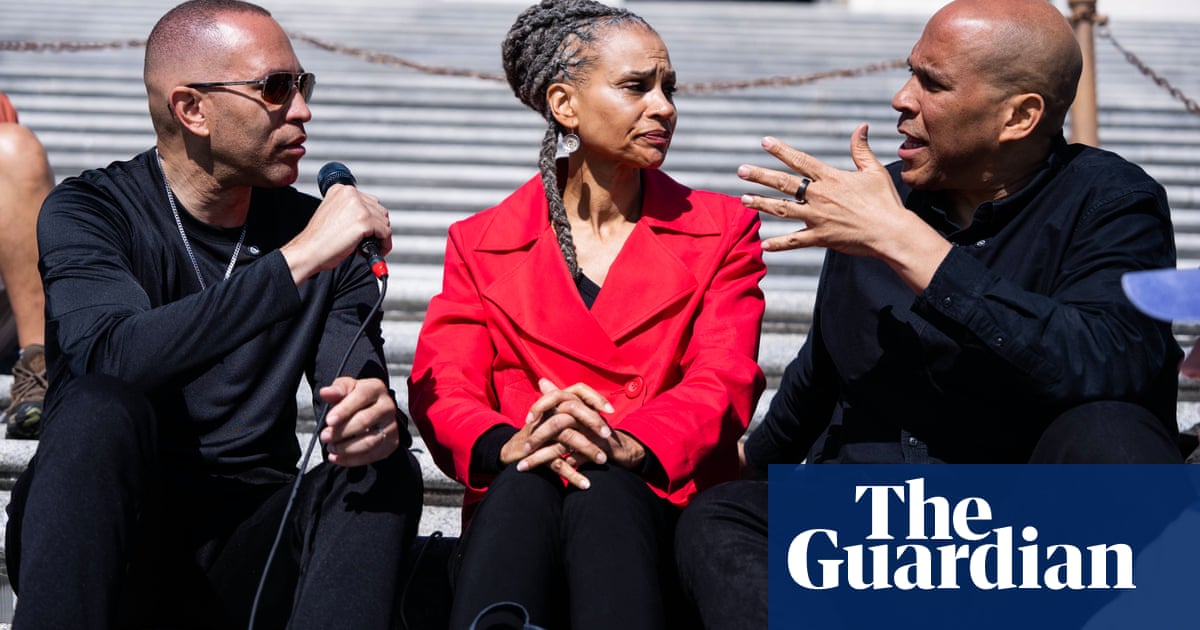“The fear is back. The fear I had when I first started my transition in 1979, that people will hurt me,” says Janey, who is 70. She has been living “happily and independently” as a woman for nearly half a century. Based in London, she still works in the mental health sector and is part of a large and accepting Irish family. She is also transgender.
“I still go into the women’s toilets at work, but when I open the door there’s that little voice inside me: ‘Will someone shout at me?’,” she says.
Last week’s supreme court ruling sent shock waves through the UK’s trans community. The unanimous judgment said the legal definition of a woman in the Equality Act 2010 did not include transgender women who hold gender recognition certificates (GRCs). That feeling was compounded when Kishwer Falkner, the chair of the Equality and Human Rights Commission, which is preparing new statutory guidance, said the judgment meant only biological women could use single-sex changing rooms and toilets.
Janey’s colleagues don’t know she’s trans (Janey is not her real name). She remembers the 1980s all too well, when “people would beat the shit out of you just for being different”.
“I always felt I didn’t have to tell people other than close friends. By my early 30s I thought: ‘I am me, end of story.’ I did what everybody else did, going out dancing, and I was treated like any other woman, which included being harassed by men.” Coming home at night, Janey still carries her keys in her hand.
It’s the fragility of rights that scares her. “Just look at what is happening in the US – what worries me in this country is that it’s all about trans people now, but this is the start of something. Rights can be knocked out in a second.”

Diana James, 66, a domestic abuse worker, says the supreme court judgment has been “a tremendous shock” to mature trans women in particular. “These are women just living their lives, coming up for retirement, pottering around their gardens, and suddenly their safety and security has been removed.”
In the intervening decades since her own transition in the mid-70s, James has witnessed “an incremental increase in rights and understanding” for trans people. “The path forward wasn’t rushed but in gentle increments, so some people who had concerns could discuss them.”
But she is one of many who identify 2017 as a pivot point, when Theresa May as prime minister proposed changing UK gender recognition laws to allow people to self-identify as their chosen gender, alongside the emergence of women’s campaign groups focusing on “sex-based rights”.
“It became wrapped up into an issue of women’s safety from trans people, despite the lack of evidence there was a genuine threat. This muddied the water around a complex situation, so a lot of the nuance was lost and so was a lot of discussion.”
Christine Burns, a retired activist and internationally recognised health adviser, charts “a fairly straight line of progress” towards the passing of the Gender Recognition Act in 2004, which allowed trans people to change gender on their birth certificate, marry to reflect their chosen identity and gave them privacy around their transition. That legislation “mattered so much to people” says Burns, while acknowledging that only a minority of the community have gone on to apply for a GRC.
She points to another significant social shift in the mid-00s. “The oddity is that the Gender Recognition Act changed lives, but the emergence of social media made it possible for there to be a revolution in how trans people engaged with the world.”
In the decade-long campaign for gender recognition, it was “a devil’s own job” to get “very shy” trans people on to the streets protesting, Burns says. But with the advent of social media, “suddenly they had a space where it was safe to describe themselves to the world, and find other trans people to compare notes with”.
The campaign for gender recognition was spearheaded by the group Press for Change, co-founded in 1992 by the acclaimed advocate Stephen Whittle, who says it taught trans people that “we didn’t have to take it lying down”.
“In the 70s and 80s, early 90s, people were terrified [that] if they tried to fight for their rights they would lose everything,” says Whittle, now 69, who found himself denounced as a “sex pervert” by a tabloid newspaper in the early 90s.

But by the mid-2010s, he sensed “the world had grown up”. “I was not monstered all the time. I was accepted as a good colleague, a good teacher, a good lawyer. But since then there has been this decline, and it has been vicious. There will be some who will retreat. There will be some people who will be galvanised.”
Roz Kaveney, 75, a poet and critic, says her concern about the “outrageous” supreme court judgment is that “a lot of people will think they are now entitled to act as vigilantes and that will be very unpleasant for their victims, not all of whom will be trans”.
James agrees: “So many trans women are bodily indistinguishable from cis women, with breasts and a vagina. Any gender non-conforming lesbian should also be worried.”
Her concern is that use of certain facilities will now come down to “passing privilege”. “So if someone fits their view of what a woman should look like, they are given permission for entry. Wasn’t that what we fought against in the 70s and 80s with our copies of Spare Rib and demands for bodily autonomy?”
Whittle likewise recalls the trans community’s solidarity with women in previous decades. “We’ve always been respectful of women’s rights. In the 80s and 90s we were out on the streets along with them and they were alongside us in this fight. And any trans person will tell you they have a lifetime’s experience of sexual assault and rape. Do [gender critical groups] not think we care about those issues?”
Burns says the judgment was especially shocking for those “who have grown up always knowing a respectful legal framework for trans people”.
Kaveney, a former deputy chair of Liberty, says: “My generation have never had to cope with an ongoing, concerted attack on trans existence that we’re seeing in the US and now here.
“It is realistic to be worried, but we’ve always been very aware of our rights in law. I’m hugely impressed with the younger generation: I’d say to them: don’t be scared, just be prepared to fight for your lives.”

 11 hours ago
6
11 hours ago
6













































